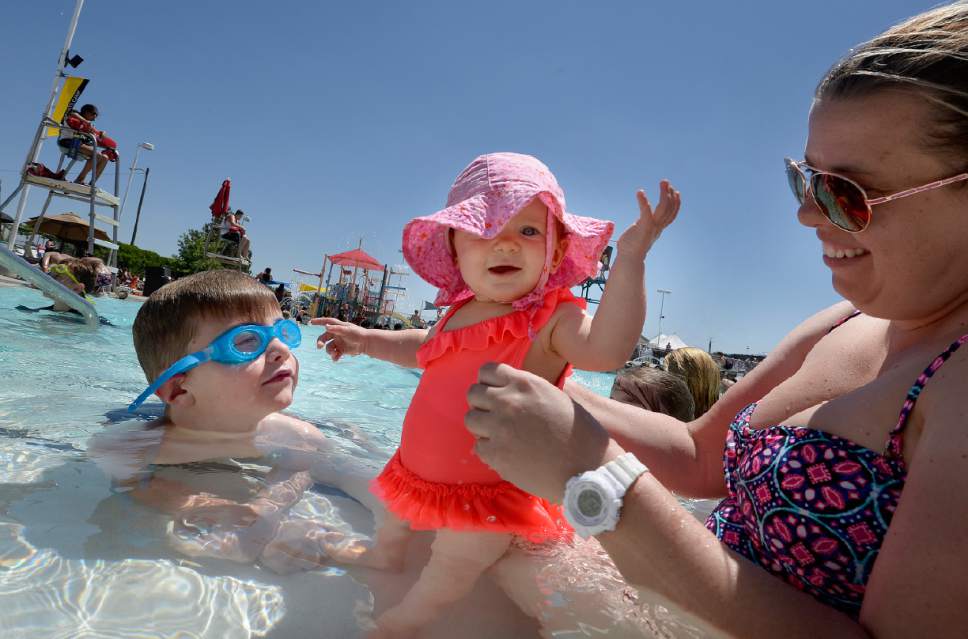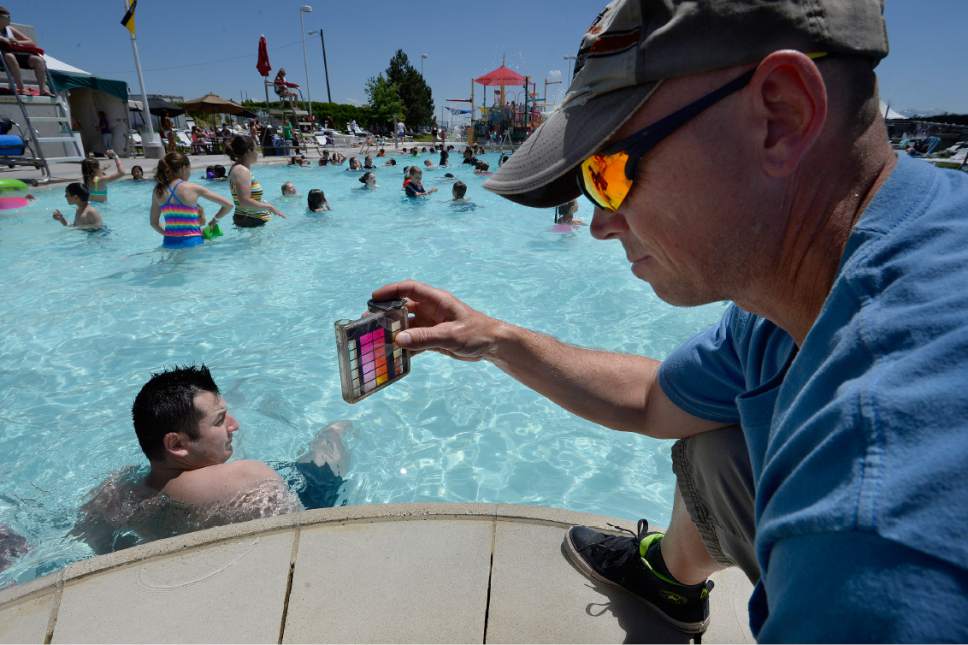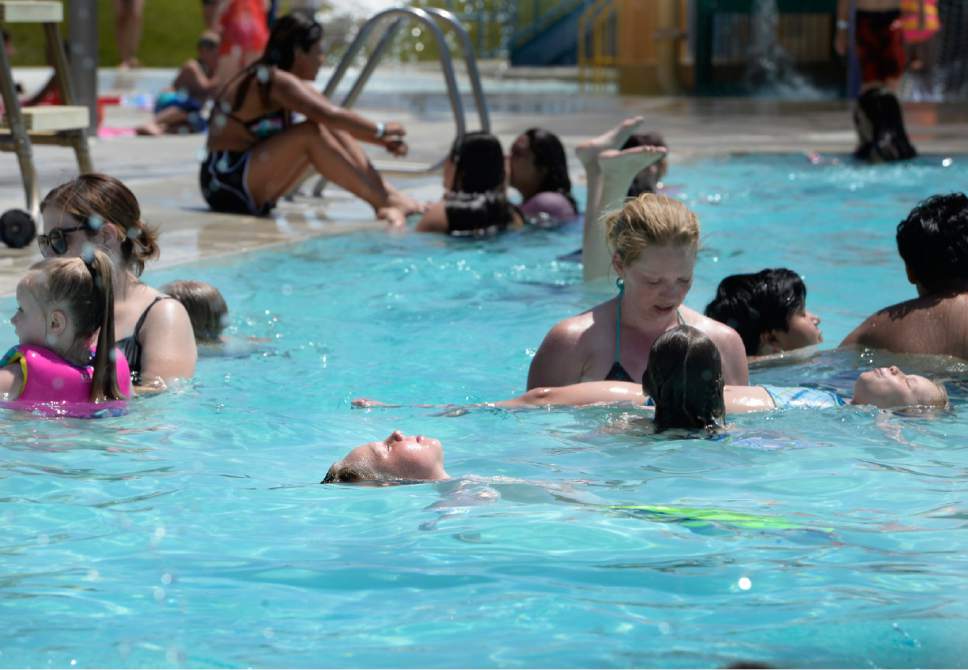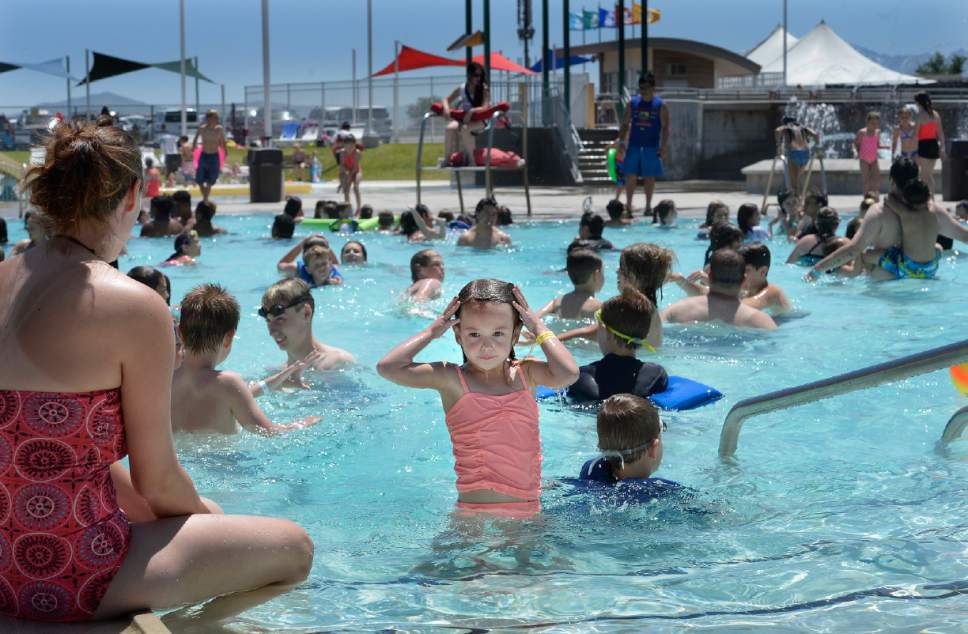This is an archived article that was published on sltrib.com in 2017, and information in the article may be outdated. It is provided only for personal research purposes and may not be reprinted.
Ten years after Utah's worst outbreak of the water-borne cryptosporidiosis bacteria, health officials are still not taking chances with residents' safety during the summer outdoor swim season.
With national averages of crypto outbreaks in pools and water playgrounds doubling in the last two years, Salt Lake County Health Department officials warned swimmers Wednesday to avoid drinking pool water to protect against contracting the illness.
"The public has been our first line of defense against crypto and other waterborne illnesses and we haven't had any kind of outbreak in many years because of it," said Rick Ledbetter, the department's water quality supervisor. "People are doing the basics to help everyone stay safe and this is another reminder of how to keep doing just that."
Cryptosporidium is a parasitic infection spread through ingesting trace amounts of infected poop. It is the most common diarrheal infection linked to swimming pools, according to the Centers for Disease Control and Prevention, and can survive in chemically treated water for up to 10 days.
Utah Department of Health data indicates there were 181 cases of crypto statewide last year, with more than a third of those linked to recreational water exposure. In May, the CDC reported crypto outbreaks in pools and water playgrounds across the country increased from 16 in 2014 to 32 in 2016.
Meanwhile, a national survey conducted on behalf of the Water and Health Council suggests that one in four adults have gone swimming within an hour of having diarrhea and about three in five admitted to swallowing pool water while swimming.
"Your local public swimming pool is not your local toilet or bathtub," said Ledbetter. "You wouldn't want to drink the water from the toilet bowl or bathtub and take on those germs."
Although health officials test water samples from public pools each month they are open, Ledbetter said residents are still advised to take simple preventative measures to avoid the spread of illness.
According to the CDC, key safeguards include staying out of public pools for at least two weeks after having diarrhea; rinsing off before entering a pool or after going to the bathroom; and not swallowing pool water.
Parents should use waterproof diapers on swimming infants, while also making sure younger children take regular bathroom breaks at the pool and that they shower before that first plunge.
Taryn Wright, a mother of four from Kearns, said going over pool safety with her kids – including "not going potty in the pool" – is part of their regular summer routine.
"It's not really for them. It's actually for me and my sanity," Wright joked while sitting on steps in the shallow end of the Kearns Oquirrh Park Fitness Center. "We couldn't come to the pool because I would be a ball of stress. Having them know what we need to do before and after we get in the pool is important."
kgifford@sltrib.com Twitter: @kelgiffo









